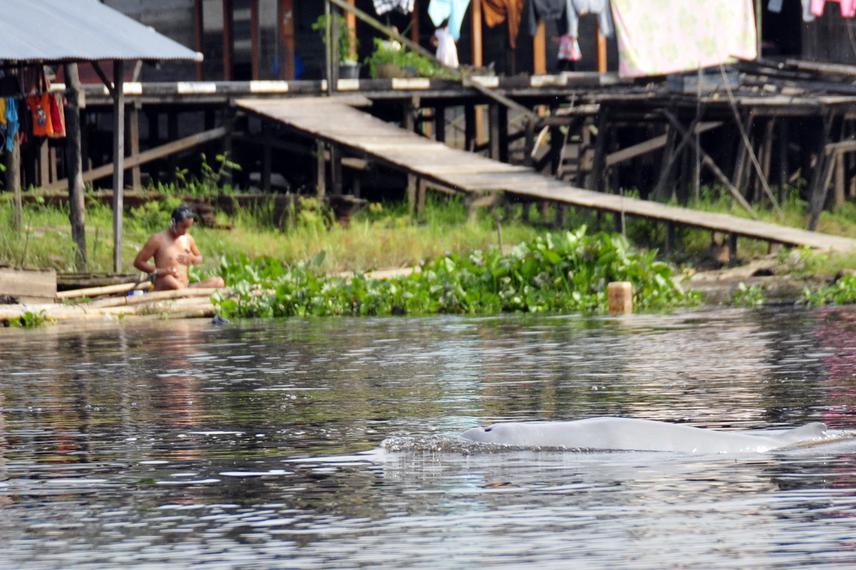Danielle Kreb
Other projects
7 Jun 2010
Sustainable Management of Freshwater Protected Areas for the Critically Endangered Irrawaddy Dolphin in the Mahakam River, East Kalimantan, Indonesia
This project aims to build awareness and commitment for the conservation of the critically endangered Mahakam River dolphin and other protected wildlife among the riverine communities with a particular focus on reduce and re-use of plastic waste.

This project seeks to improve the habitat quality of the Critically Endangered population of Irrawaddy dolphins, Orcaella brevirostris, in the local vernacular named Pesut, in the Mahakam River in East Kalimantan, Indonesia. Even though the species has been protected in Indonesia since 1990 and is the symbol species for East Kalimantan Province, the dolphins still face many challenges of which besides direct mortality through gillnet entanglement, habitat deterioration is another major threat. Plastic waste is known to be a problem for the dolphins since diapers and plastic strings have been found in the stomachs of dead dolphins in the Mahakam River. Because lakes and some parts of the river are influenced by tidal or slow flowing currents, some plastic remains in the area and becomes micro-plastic that becomes part of food chain and end up in fish stomachs that are being eaten by dolphins and birds, crocodiles, and otters. The project follows up on earlier activities related to environmental capacity building of traditional fishing communities in main river dolphin habitat conducted by the local NGO Yayasan Konservasi RASI (Rare Aquatic Species of Indonesia).
The current project will focus on river-shore households, especially women and youth in relation to proper waste disposal. Community meetings and outreach will be conducted in 30 villages both inside and outside the designated dolphin protected in Central Kutai district to socialize and discuss how riverine households can deal properly with their non-organic waste. This will also involve garbage collection to one garbage location for final disposal and community sanctions in case residents throw waste in non-designated places. Schools will be targeted through garbage bin painting competition and clean up actions whereas female activity groups will be targeted through recycled handy-crafts' training. We expect that the future prevention of plastic garbage disposal in the river will increase the survival ability of the river dolphins through better health. We also expect to obtain a community agreement and enactment of village rules to sanction disposal of non-organic waste in the river or non-designated places. Besides, we expect to achieve a raised awareness and changed attitudes in relation to inappropriate garbage disposal into the river.